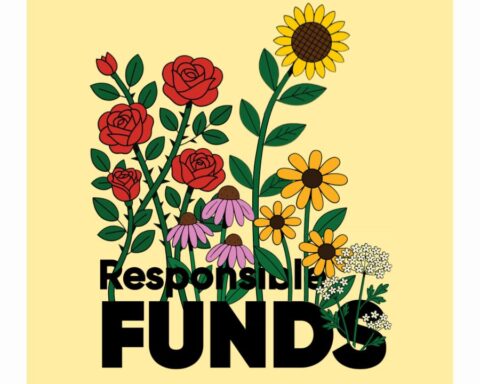Are Canada’s financial institutions and large private companies aligned with climate action? Canadians want them to be. In fact, the majority of Canadians want strong policies from the government to ensure that financial institutions invest more sustainably.
The government has started to take action, but more is needed. Last week, in the fall economic statement, the federal government promised action on sustainable finance. It committed to a green and transition taxonomy (a classification system for investments) and mandatory climate-related disclosure from large private companies. It also proposed to tackle greenwashing by strengthening competition law. If done well and implemented quickly, these policy promises would make the financial sector more sustainable and help Canada reach its 2030 emission-reduction commitments.
Canada can succeed on its global climate commitments only if financial institutions move in the same direction and allocate money to climate solutions instead of climate pollution. Yet many Canadian banks, pension funds, insurers and large companies still underinvest in clean energy and disproportionately invest in oil, gas and coal. Earlier this year, Canada was recognized as a “low-regulation jurisdiction” on sustainable finance by a UN sustainable investment group.
Recent polling by conducted by Pollara Strategic Insights shows that more than two-thirds of Canadians want new rules from the government to ensure that financial institutions invest sustainably. In general, respondents to the poll said they want the long-term good of society to be prioritized over short-term profits.
In other words, Canadians have connected the dots: a safe planet means a better quality of life with less volatility and more affordability. Regulating climate finance, as esoteric as it may seem, would make investments work in people’s best interests.
Some policy-makers have stepped up to the plate.
Last year, independent Senator Rosa Galvez introduced the Climate-Aligned Finance Act (CAFA), a comprehensive legislative proposal that would align the financial system with climate action. The proposal moves beyond traditional frameworks, which consider only how the financial sector is affected by climate risk, to also tackle how investments in polluting industries can make climate change worse.
The bill is finally being debated in the Standing Senate Committee on Banking, Commerce and the Economy. Last week was the first hearing of what is expected to be a many-session study of CAFA. Independent climate experts are expected to be called to discuss why this bill is important for Canada to meet its climate commitments.
If passed, CAFA would ensure that financial institutions reduce the emission footprints of their investments and invest in climate resilience. This would bring transparent reporting and clarify which institutions are taking real climate action versus which are counterfeiting their green credentials. The bill would create a duty for leaders of financial institutions to consider – and take – climate action.
Climate finance policies like CAFA have support. More than 120 organizations, climate experts and academics endorse the bill, even writing to other senators to encourage them to support it too.
Some banks have taken issue with parts of climate-aligned financial policy, in particular with the elements that would be most effective at stymieing fossil fuel investments. But others have endorsed the bill. In support of the bill, Vancity notes that “it is imperative to transform our economy into one that protects the earth and guarantees equity for all,” and Desjardins Caisse d’économie solidaire applauds the bill for its ability to “upgrade our federal financial system in the face of climate change.”
Climate-aligned financial policy is key to spurring new green activity across the economy, meeting the best interests of Canadians and enabling Canada to succeed on its climate commitments. The key policy: credible climate transition plans should be required across the economy, in which financial institutions and large companies publish plans to reduce their investments’ emissions in line with a safe climate. To have a scientifically credible climate plan, an institution would have to show how it would reduce its investments’ emissions by half by 2030 and achieve net-zero by 2050 or sooner.
People in Canada want regulation for a more sustainable financial system that aligns with climate action. What is needed now? Quick progress on the Climate-Aligned Finance Act and for the federal government to turn its policy promises into policies.
Julie Segal is senior manager of climate finance at Environmental Defence Canada.
Melanie Snow is the federal legislative affairs specialist at Ecojustice.







